This website uses cookies so that we can provide you with the best user experience possible. Cookie information is stored in your browser and performs functions such as recognising you when you return to our website and helping our team to understand which sections of the website you find most interesting and useful.
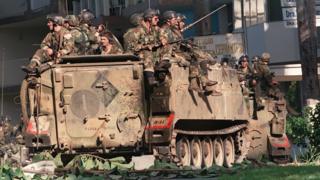 Image copyright AFP
Image copyright AFPThe invasion came by sea, air and land. Thousands of US troops descended on Panama, seeking to unseat its de facto leader and bring him to Miami to face drug charges.
It was 20 December 1989, and the once close relationship between General Manuel Noriega and the US had deteriorated to the point of no return.
In an address to the nation, then President George H W Bush said he had ordered military forces to Panama to "protect the lives of American citizens" and bring Noriega "to justice".
The announcement came days after Panamanian forces killed an American serviceman. At the time, Noriega was also facing a US indictment for drug-trafficking, as well as claims he had rigged a 1989 election.
Operation Just Cause, as it was dubbed by the US, saw more than 20,000 US troops invade the country and seize control of key military installations.
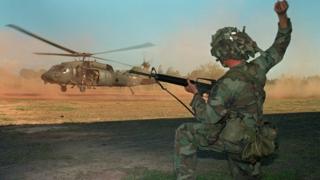 Image copyright AFP
Image copyright AFPOfficially, 514 Panamanian soldiers and civilians were killed in the invasion but some local groups say the real number is closer to 1,000. Twenty-three US military personnel died.
The invasion turned Panama City into a battleground.
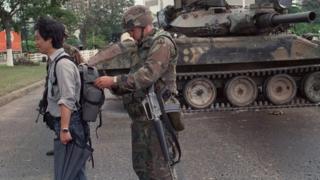 Image copyright AFP
Image copyright AFP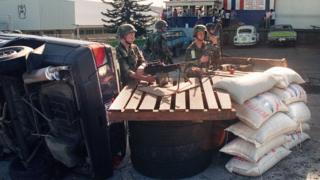 Image copyright AFP
Image copyright AFP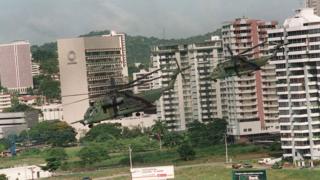 Image copyright AFP
Image copyright AFPSupporters of Noriega were arrested during the unrest.
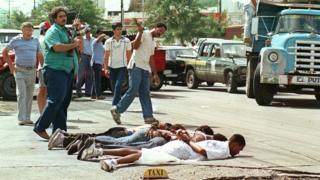 Image copyright AFP
Image copyright AFPThis man, reportedly caught looting during the invasion, was blindfolded and detained by US troops.
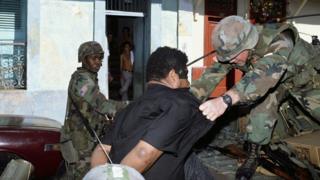 Image copyright Getty Images
Image copyright Getty ImagesPanamanians opposed to Noriega celebrated the operation to unseat him.
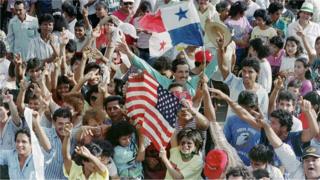 Image copyright AFP
Image copyright AFPNoriega sought refuge in the Vatican's diplomatic mission. Troops stayed outside over the Christmas period and played deafening rock music to get him to leave in an act of psychological warfare. Songs by The Clash, Van Halen and U2 were among those played.
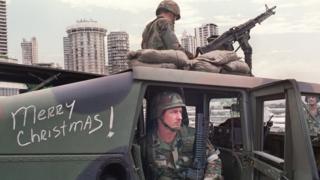 Image copyright Getty Images
Image copyright Getty Images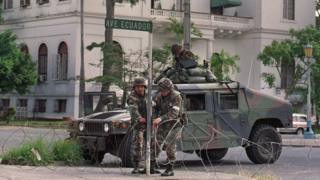 Image copyright AFP
Image copyright AFPNoriega surrendered on 3 January 1990, after spending 11 days at the embassy.
He was then flown by US Drug Enforcement Administration officials to Miami to stand trial, and ultimately found guilty of drug trafficking, racketeering and money laundering.
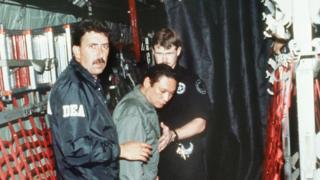 Image copyright Getty Images
Image copyright Getty Images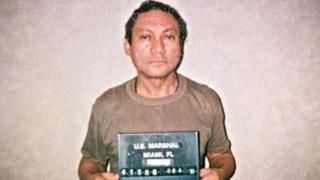 Image copyright EPA
Image copyright EPANoriega spent the rest of his life in custody - first in the US, then France and finally under house arrest in Panama. He died in 2017, aged 83, as a result of complications from an operation to remove a brain tumour.
All photos subject to copyright.



 Africana55 Radio
Africana55 Radio 
